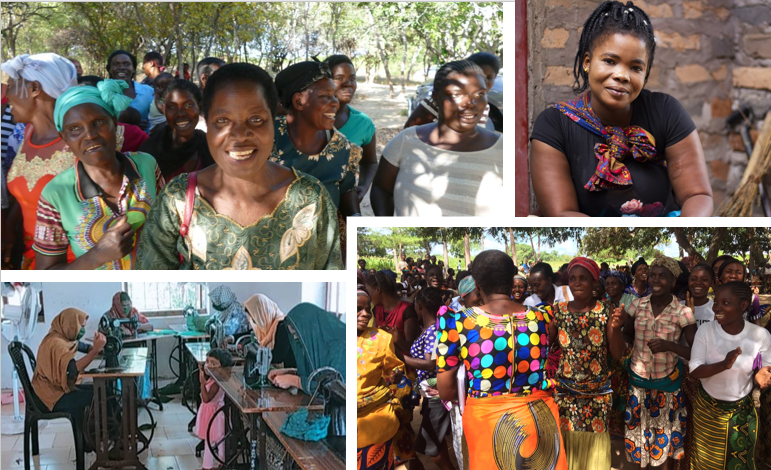Inclusive Skills Development: Making Programs Work Better for Women
OVERVIEW
Women make up on average half of a country’s population; still, their distinctive constraints to accessing quality education and training, entering the labor market, and staying in are often overlooked or weakly addressed in development projects. Across countries, women remain underrepresented in the labor market, and when they work, they are usually paid less and are commonly engaged in informal and lower-productivity jobs. A growing body of evidence suggests that it is important to incorporate intentional design features to address women-specific barriers, including in their access to and persistence in skills development opportunities. The webinar will be organized around innovative work on how skills programs may be designed to work better for women, and it aims to ignite a productive conversation about what has worked and what is still lacking to better address women constraints moving forward.
WEBINAR
This webinar will present an overview of the literature on the operational approaches based on the paper “Adapting Skills Training to Address Constraints to Women’s Participation” and will feature two projects, Nai Manzil in India and GEWEL in Zambia, which are actively working in helping disadvantaged adolescent girls and women reach their full potential through skills training and business support. The discussion will aim for a critical assessment of the approaches being implemented, lessons learned about what has worked well and what has not, and what are some of the gaps that remain in order to improve skills programs for women.
ABOUT THE PAPER
“Adapting Skills Training to Address Constraints to Women’s Participation”
This note identifies practical solutions for development practitioners in the design of skills training programs in order to improve outcomes for women. It draws on a wide body of evidence stemming from impact evaluations, systematic reviews, and meta-analyses. The note identifies three broad areas of adaptation for skills programs to address obstacles to success for women in such programs: operational features, aspects of economic constraints, and strategies that focus on information, aspirations, and norms. Specific examples from across the globe of such adaptations are provided.
ABOUT THE PROJECTS
Nai Manzil (“New Horizons”) is a World Bank-supported program, run by the Ministry of Minority Affairs (Government of India) between 2017 and 2021, that provided almost 100,000 school dropouts (aged 17-35 years) from religious minority communities in India with 6 months of education and 3 months of skills training, followed by support to enter the labor market or further education/training. Enrollees received a monthly stipend during training and for 2 months of work placement (about US$200 in total). It was the first time that such a program was implemented in India, but it proved very successful in meeting the needs of disadvantaged minority women who were looking for ways to reengage with education and skilling for employment. The project initially anticipated enrolling about 30% female candidates, but eventually just over half of enrollees were women.
The Supporting Women’s Livelihoods component of the Girls’ Education and Women’s Empowerment and Livelihood (GEWEL) Project in Zambia provides one-time support to improve productivity and earnings of poor rural women. This aims to increase their incomes and diversify their livelihoods through micro-entrepreneurship. Extremely poor women aged between 19 to 64 years are provided with a comprehensive package including (i) a three-week life and business skills training; (ii) a productivity grant of $200 and (iii) savings groups support. The project has so far supported 75,000 women and will reach a total of 129,400 beneficiaries in 81 districts by 2024. The life and business skills training aims to increase women’s knowledge of gender issues and sexual and reproductive health, improve their basic financial literacy and business skills, and facilitate buy-in and support from other household members, especially males.
SPEAKERS
CHAIR: Margaret Ellen Grosh, Senior Advisor, Social Protection and Jobs GP, World Bank
PAPER: “Adapting Skills Training to Address Constraints to Women’s Participation” presented by Kathleen Beegle, Research Manager, Development Economics Department, World Bank
PROJECTS SHOWCASE:
- Nai Manzil program in India presented by:
- Marguerite Clarke, Senior Education Specialist, World Bank
-
Meghna Sharma, Education Specialist, World Bank
- Pradyumna Bhattacharjee, Education Specialist, World Bank
- Girls Education and Women’s Empowerment and Livelihoods project (GEWEL) in Zambia presented by:
- Emma Hobson, Senior Social Protection Specialist, World Bank
- Ioana Botea, Social Protection Economist, World Bank
DISCUSSANT:
- Anna Fruttero, Senior Economist, Gender Group, World Bank
